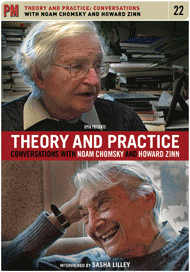Is this what we're reduced to?
Some days I regret the internet. You have all this wonderful access to all these wonderful things: In the same online errand, you can find an entire book about the Students for a Democratic Society and a page sourcing every math reference in the simpsons. Not only that, but it can be pretty democratizing too: for less than the cost of my roommate's on-again-off-again cigarette habit, I can post audio explaining the prison industrial complex and other stuff that I feel needs to get out there. But there is something frustrating about the whole thing as well: it reduces everything to Ones and Zeroes.
Case-in-point: Recently on a webpage that I go to daily, there is a link to a "tribute" to Rosa Parks. The Rosa Parks who served as the catalyst of the Montgomery Bus Boycott, worked for the NAACP and had been taught at the Highlander school, participated in the Civil Rights movement, and who recently passed away. What is her tribute? She is placed in a mock iPOD ad that grants her the tagline iSitWhereIWantTo. This is totally stupid. And it feels just like something that would get sent around on the internet because it looks so cool. It makes sense on the internet. Huge corporation that sells computers to people and brands itself a "rebel" and Rosa Parks. It is one thing if the huge corporation wants to brand itself as having a face, being an individual, being just like us. They put icons in their ads and then say "Think Different." Why do they do this? Not to spit Advertising History 101, but because people are moved more by emotional resonance with a product than by factual descriptions. Especially since we all know that advertisers lie. It is easy to recall that the last brandname razor with three blades you bought wasn't that much better than the one with two; it is easier to recall that your significant other complimented you on the clean shave before giving you a quick kiss. The razor blade corporation cares nothing for our relationships, it just wants to sell razor blades. So instead of selling us a product, they brand our memories with it.
They have their product in the background of hit sitcoms to make their soda hip and young. They have athletes wear prominent logos and make prominent statements to make a tire seem active. They have commercials showing people, young and attractive, going the extra mile and then they flash their office supply logo at the last instant. These corporations care nothing for supporting the sitcom arts or sports or those young people. They just want to brand the association. Apple wants you to associate their computers with great thinkers and courageous heroes so they show those icons next to the apple logo and the instruction to "Think Different." Just don't think that different. Think different, but still go and buy an Apple computer. It'll make you like the courageous smart people. They need to make their profit and they have studied how to do it. Stuart Ewen wrote a great history of this in "Captains of Consciousness."
Knowing all of this, why aren't I simply desensitized to the stupidity of this fake tribute to Rosa Parks? First, because it is insulting to the Civil Rights movement, a movement that wasn't about individual gain, but rather forcing white society to begin to treat people of color in this country like human beings. Rosa Parks wasn't simply expressing herself. She was a part of a movement, a long movement for justice and freedom involving lots of people, that is constantly being repackaged and sold back to us in the past tense. The movement happened, we'll sell it back to you, buy our junk. Mcdonalds hails Martin Luther King Jr., wiping clean his explicit critiques against war and work against a system that requires black poverty like McDonald's business plan requires black poverty, and reduces him to a happy-go-lucky dreamer. Puts him on the side of a plastic disposable cup. This isn't a tribute. It is just pimping.
Second, it is insulting enough when any of these corporations do it, but it is ridiculous when this branding gets to the point where everything and everyone has been reduced to simple icons, be it a music device or an activist, with no meaning beyond the branding, and we, not just corporations, can just mix and match them and everything is on the level. Just ones and zeroes. Ipods represent courageous individuals, so we, regular people, can honor the passing of true courageous individuals with fake ads showing them with Ipods. And call it a tribute. It is insulting. It is troubling. I don't mean to hawk the internet, but sometimes I get really worried. Like we're all so busy being media consumers, that we've forgotten how to be actors. And when we are just media consumers, they can try to spoonfeed us anything. Want to join a movement? Join the Ipod movement. It is bad enough that I have to stomach that, I don't need other non-corporation people spoonfeeding me the same old shit.
Case-in-point: Recently on a webpage that I go to daily, there is a link to a "tribute" to Rosa Parks. The Rosa Parks who served as the catalyst of the Montgomery Bus Boycott, worked for the NAACP and had been taught at the Highlander school, participated in the Civil Rights movement, and who recently passed away. What is her tribute? She is placed in a mock iPOD ad that grants her the tagline iSitWhereIWantTo. This is totally stupid. And it feels just like something that would get sent around on the internet because it looks so cool. It makes sense on the internet. Huge corporation that sells computers to people and brands itself a "rebel" and Rosa Parks. It is one thing if the huge corporation wants to brand itself as having a face, being an individual, being just like us. They put icons in their ads and then say "Think Different." Why do they do this? Not to spit Advertising History 101, but because people are moved more by emotional resonance with a product than by factual descriptions. Especially since we all know that advertisers lie. It is easy to recall that the last brandname razor with three blades you bought wasn't that much better than the one with two; it is easier to recall that your significant other complimented you on the clean shave before giving you a quick kiss. The razor blade corporation cares nothing for our relationships, it just wants to sell razor blades. So instead of selling us a product, they brand our memories with it.
They have their product in the background of hit sitcoms to make their soda hip and young. They have athletes wear prominent logos and make prominent statements to make a tire seem active. They have commercials showing people, young and attractive, going the extra mile and then they flash their office supply logo at the last instant. These corporations care nothing for supporting the sitcom arts or sports or those young people. They just want to brand the association. Apple wants you to associate their computers with great thinkers and courageous heroes so they show those icons next to the apple logo and the instruction to "Think Different." Just don't think that different. Think different, but still go and buy an Apple computer. It'll make you like the courageous smart people. They need to make their profit and they have studied how to do it. Stuart Ewen wrote a great history of this in "Captains of Consciousness."
Knowing all of this, why aren't I simply desensitized to the stupidity of this fake tribute to Rosa Parks? First, because it is insulting to the Civil Rights movement, a movement that wasn't about individual gain, but rather forcing white society to begin to treat people of color in this country like human beings. Rosa Parks wasn't simply expressing herself. She was a part of a movement, a long movement for justice and freedom involving lots of people, that is constantly being repackaged and sold back to us in the past tense. The movement happened, we'll sell it back to you, buy our junk. Mcdonalds hails Martin Luther King Jr., wiping clean his explicit critiques against war and work against a system that requires black poverty like McDonald's business plan requires black poverty, and reduces him to a happy-go-lucky dreamer. Puts him on the side of a plastic disposable cup. This isn't a tribute. It is just pimping.
Second, it is insulting enough when any of these corporations do it, but it is ridiculous when this branding gets to the point where everything and everyone has been reduced to simple icons, be it a music device or an activist, with no meaning beyond the branding, and we, not just corporations, can just mix and match them and everything is on the level. Just ones and zeroes. Ipods represent courageous individuals, so we, regular people, can honor the passing of true courageous individuals with fake ads showing them with Ipods. And call it a tribute. It is insulting. It is troubling. I don't mean to hawk the internet, but sometimes I get really worried. Like we're all so busy being media consumers, that we've forgotten how to be actors. And when we are just media consumers, they can try to spoonfeed us anything. Want to join a movement? Join the Ipod movement. It is bad enough that I have to stomach that, I don't need other non-corporation people spoonfeeding me the same old shit.





